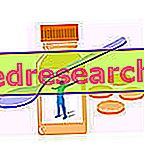Generality
Exhaustion is a condition of extreme tiredness and marked physical and mental fatigue .

Exhausted patients generally feel deprived of energy and struggle to stay focused even during the simplest and least demanding activities. Exhaustion can be caused by many factors of various origins. This condition, therefore, is not a disease or a disorder, but a symptom that can manifest itself following various causes. It is clear, therefore, that the resolution of the sense of exhaustion depends substantially on the resolution of the cause that generated it.
What is that?
What is Exhaustion?
As mentioned, fatigue is a symptom that can originate from various causes. It is characterized by what is defined as extreme physical and mental fatigue. The term exhaustion is often used as a synonym for asthenia to indicate a general lack of energy, a lack of strength and a reduction in vitality .
However, regardless of the way in which it is defined, exhaustion can represent a real problem for the patient who manifests it, since it can hinder and even make difficult the most common and normal daily activities.
Causes
What are the Causes of Exhaustion?
Exhaustion is a non-specific symptom that manifests itself in multiple situations. The conditions that lead to the onset of the symptom can be both pathological and non-pathological.
Pathological Causes
Exhaustion is part of the symptomatology of many diseases, among which we recall:
- Bacterial or viral infections;
- Cooling diseases;
- Respiratory disorders such as:
- Chronic obstructive pulmonary disease (COPD);
- Respiratory allergies;
- Lung abscess;
- Pulmonary fibrosis.
- Thyroid disorders (hyperparathyroidism, hypothyroidism, hyperthyroidism);
- Hepatic failure;
- Kidney failure;
- anemia;
- Chronic fatigue syndrome;
- Psychiatric disorders (anxiety, depression, panic attacks);
- Cardiovascular disorders (hypotension, myocardial infarction, congestive heart failure, etc.);
- Diabetes;
- Hypoglycemia;
- Sleep disorders;
- Eating disorders (bulimia, anorexia, etc.);
- Tumors.
Non-Pathological Causes
Instead, among the most common non-pathological causes that can give rise to the fatigue symptom, we find:
- Season changes, the onset of exhaustion is very common in the vicinity of seasonal changes, especially when the cold winter months pass to the mild temperatures typical of spring. Not surprisingly, in similar situations, we speak more properly of "spring fatigue".
- Periods of high stress .
- Periods of intense work activity and periods of intense study (for example, near school and university examinations).
- Non pathological deficiencies of mineral salts and vitamins : a diet that is not exactly balanced and low in vitamins and minerals, as well as an increase in the consumption of these nutrients by the body could lead to a condition of exhaustion.
- Irregular lifestyle (for example, constant consumption of meals out of hours, insufficient sleep, etc.).
- Environmental conditions : very hot and humid climates favor the appearance of exhaustion, making it difficult to maintain concentration and carry out work and school activities.
- Pregnancy : pregnancy is a natural condition which, however, can give rise to fatigue and exhaustion, particularly during the first and third trimesters.
- Menopause : as it happens during pregnancy, menopause - a completely normal and physiological process in a woman's life - can promote the onset of exhaustion.
Please note
Given the wide variety of factors that can give rise to the symptom in question, it is worth pointing out that the aforementioned lists are not exhaustive, but only show some of the main and most widespread causes of exhaustion.
Associated symptoms
What symptoms can manifest themselves in association with exhaustion?
Exhaustion manifests itself as a sense of generalized fatigue that involves both the physical and the patient's mind, making him feel literally powerless. Alongside these typical manifestations, other symptoms may also occur, including:
- Easy fatigability;
- Difficulty concentrating;
- Mild headache.
Of course, in addition to the aforementioned symptoms - which are also non-specific - it is possible that, in association with exhaustion, there is also a typical symptomatology of the triggering cause.
When to worry
When to worry and when to go to the doctor?
As we have seen, fatigue does not always represent the symptom of some hidden pathology, but sometimes it can be a consequence of physiological conditions (for example, pregnancy or menopause), or a consequence of a lifestyle that is not too regular or intense activity, work, school or sport.
Without prejudice to the importance of contacting a doctor in any situation to pinpoint the cause responsible for fatigue, consulting with this health figure becomes even more necessary when the symptom appears without any apparent cause and when it occurs in an intense and sudden manner . A fortiori, the doctor's intervention is indispensable when exhaustion is also associated with other more or less serious symptoms (for example, fever, mental confusion, fainting, pain in different parts of the body, etc.). In such situations, the doctor will prescribe the execution of all the analyzes and the appropriate examinations, in order to make a correct diagnosis.
Care and Treatment
Care, Treatment and Remedies for Exhaustion
Naturally, since it is a symptom, the resolution of exhaustion is inextricably linked to the care and treatment of the underlying cause that triggered it. It is not always necessary to intervene with medical treatments; sometimes, in fact, it might be enough to improve one's lifestyle.
Medical Therapies
The use of medical therapies (pharmacological, surgical, psychological / psychiatric, etc.) is necessary in all those situations in which exhaustion is caused by disorders and diseases . For example, in the presence of bacterial infections it will be necessary to use antibiotics; in the presence of neoplastic diseases, however, it may be necessary to intervene either through surgical therapy (for the possible removal of the tumor), or through pharmacological and non-pharmacological therapies (chemotherapy, radiotherapy, etc.); or again, in the presence of psychiatric pathologies, pharmacological therapy (antidepressants, anxiolytics, etc.) can be accompanied by adequate psychological support (for example, cognitive-behavioral psychotherapy).
Naturally, each pathology has its own therapeutic protocol which must be established by the doctor or specialist following a correct diagnosis .
Food supplements
Many individuals, as soon as they feel the sense of exhaustion and fatigue, tend to immediately resort to the use of food supplements of vitamins and minerals or food supplements with an energizing action in an attempt to regain lost strength and vitality. However, it should be pointed out that the use of similar products can be effective only if, indeed, there is a lack of the aforesaid nutrients, due, for example, to an unbalanced diet or an increased consumption (as happens, for example, in individuals who practice intense sporting activity).
Therefore, in the presence of exhaustion, before taking any product - even if it can be bought freely like the supplements mentioned above - it would be good to always ask for the preventive advice of your doctor, so that he can contribute to identifying the cause causing the symptom in question.
Lifestyle
Although exhaustion is the symptom of various diseases, in many cases, the trigger is to be found in an unregulated lifestyle . Therefore, in such situations, making some changes to one's habits and adopting a few simple steps might be sufficient to solve the problem of exhaustion. In this sense, it can be useful:
- Follow a healthy and balanced diet, avoiding particularly fatty foods and so-called junk foods. To be fair, a correct diet is always the best choice to guarantee the health of the entire body, even when there is no exhaustion.
- As much as possible, try to reduce the intensity of work and study .
- Reduce stress by trying to relax as much as possible or by spending your time in some hobby that allows you to have fun.
- Try to regularize your habits (for example, eating meals at regular times, make sure you sleep at least 7-8 hours per night, preferably, always going to sleep at the same time).
If, in spite of correct lifestyle habits, exhaustion persists, worsens and / or is associated with other symptoms, it is advisable to promptly contact your doctor who will carry out all the necessary investigations to identify the cause, therefore the most appropriate treatment for eliminate the symptom in question in each patient.



